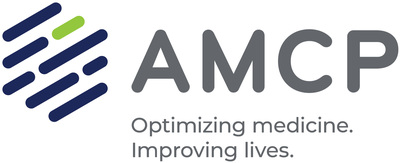Focusing on what’s best for the patient, leveraging technology to perform real-time benefit checks, and developing trust and transparency among stakeholders are some of the suggestions to emerge from AMCP’s recent Partnership Forum on “Optimizing Prior Authorization for Appropriate Medication Selection.”
|
ALEXANDRIA, Va., July 3, 2019 /PRNewswire/ -- Focusing on what's best for the patient, leveraging technology to perform real-time benefit checks, and developing trust and transparency among stakeholders are some of the suggestions to emerge from AMCP's recent Partnership Forum on "Optimizing Prior Authorization for Appropriate Medication Selection."
The event, which took place June 25 and 26 outside of Washington, D.C., brought together diverse health care experts to recommend ways of improving prior authorization processes. Drugs and health care services that require a prior authorization are not approved for coverage unless certain evidence-based conditions are met, such as trying an alternative therapy first. An essential utilization management tool, prior authorizations are designed to ensure patients receive the most appropriate medications, while reducing waste, improving safety and avoiding unnecessary costs. While prior authorizations have been used successfully for decades, the process has come under scrutiny in recent years, and many stakeholders have called for improving the way prior authorizations are carried out. "AMCP wants to take a proactive approach in addressing recent concerns around prior authorization," said AMCP CEO Susan A. Cantrell, RPh, CAE. "This Forum will result in recommendations that will allow stakeholders throughout the health care system to enhance efficiencies and decrease burdens when seeking these authorizations. Our efforts also aim to underscore the vital role these tools play in ensuring the best patient outcomes while controlling costs." To achieve these goals, the Partnership Forum gathered thought leaders from across the health care spectrum, including representatives of managed care, providers, pharmacy, the biopharmaceutical industry and patients. The event included an examination of ways to: ease administrative burdens; increase visibility of the clinical and economic value of prior authorizations; and improve communications between managed care, providers and patients to minimize care delays and improve clarity of coverage requirements. Some of the high-level recommendations and themes to emerge from the Forum include the need for:
Detailed recommendations from these issues and more will be included in a proceedings document that will be published in an upcoming issue of AMCP's Journal of Managed Care & Specialty Pharmacy. Sponsors of this event were Mallinckrodt Pharmaceuticals, Merck, the National Pharmaceutical Council, and Takeda. The Partnership Forum is the latest in AMCP's efforts to make prior authorizations more efficient. The AMCP Professional Practice Committee last month released a list of best practices around nine specific concepts to support more timely, efficient and collaborative prior authorization processes. Those can be read at http://bit.ly/2IdCkXz. About AMCP
SOURCE Academy of Managed Care Pharmacy |





